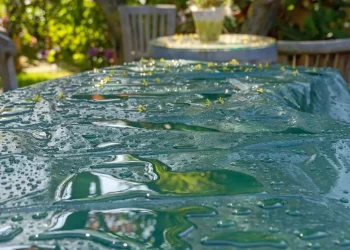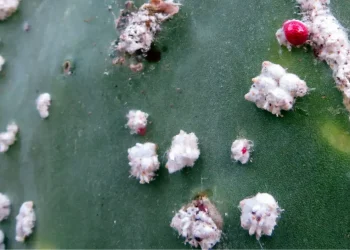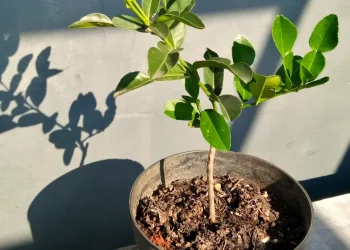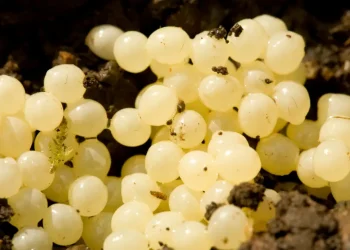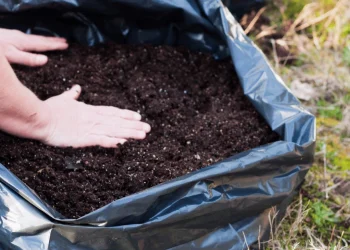Although plants can usually do just fine without additional nutrition from fertilizers, fertilizers do come with a range of benefits. But let’s be honest, fertilizers aren’t always the cheapest.
Natural fertilizers are a great option that you can make yourself at home from many different leftovers and ingredients. And if you own rabbits, you hit a gold mine of super fertilizer.
In this article, I’ll give you my two favorite methods to make rabbit fertilizer tea at home.
What is Rabbit Manure Tea and Why to Use it in Garden?
If you are a gardening enthusiast with a sustainable mindset as I am, you’ll be thrilled to discover the wonders of rabbit manure tea as a cost-effective and eco-friendly fertilizer for your garden.
Before you raise an eyebrow, let’s take a look at what rabbit fertilizer tea actually is and the long list of benefits it brings to your garden.
Rabbit manure tea comes with many different names. You could hear the label bunny brew, rabbit fertilizer tea, rabbit compost tea, and many others. But in all cases, it’s a nutrient-rich fertilizer crafted from the droppings of your fluffy friends.
This all-natural concoction is created by steeping rabbit poop in water, allowing the beneficial nutrients to infuse into the liquid. It is especially high in nitrogen, which is a crucial component of the chlorophyll molecule which enables photosynthesis.
Benefits of using Rabbit Fertilizer Tea
Benefits of Rabbit Manure Tea
- Affortable
- Nutrient-Rich
- Slow-Releasing
- Gentle and Safe
- Environmentally Friendly
As you can see in the table above, making rabbit poop tea for your garden comes with a long list of benefits.
- Abundant and Affordable: If you have a pet rabbit or own a rabbitry, rabbit manure is available for you in plenty. But instead of tossing it away, you can make it into this budget-friendly fertilizer, which comes a lot cheaper compared to commercial fertilizers.
- Nutrient-Rich: Rabbit manure boasts a high concentration of essential nutrients like nitrogen, phosphorus, and potassium (N-P-K). These are the building blocks that fuel plant growth and productivity (photosynthesis).
- Slow-Releasing: Rabbit Manure Tea delivers its nutrients gradually to your plants, promoting steady, sustained growth without the risk of nutrient leaching or the risk of burning your plants with fertilizers.
- Gentle and Safe: Unlike some fresh animal manures that can burn plants if applied directly, rabbit manure is mild and can be used immediately without composting. It won’t harm your beloved plants during application.
- Environmentally Friendly: Rabbit Manure Tea is an eco-conscious choice. It reduces waste by utilizing a resource that might otherwise be discarded.
What Makes Rabbit Compost Tea so Good
You already learned that rabbit droppings are great from every angle, at least for your garden. But what exactly is the thing or component that makes it a gardener’s secret weapon?
At its core, this nutrient-rich elixir contains a balanced blend of nitrogen, phosphorus, and potassium, which are the key players in supporting your garden’s health and productivity. Fresh rabbit manure contains approximately Nitrogen : Phosphorus : Potassium of
N : P : K/ 2.1 : 1.4 : 0.6
You’ll find details about these three on the package of every fertilizer. For comparison, the most basic bottle of fertilizer I could find contains N:P:K – 5:10:5, which comes at approximately 0.75:1.5:0.75 per dose.
Nitrogen: This vital nutrient fuels lush, leafy growth in your plants. It stimulates the development of vibrant green foliage. It helps with energy conversion and helps give plants a healthy green color.
Phosphorus: When it comes to encouraging robust root development, phosphorus takes the lead. It aids in the formation of strong root systems, enhancing your plants’ ability to absorb nutrients and water from the soil.
Potassium: Also known as potash, potassium is responsible for bolstering overall plant health and resilience. It plays a critical role in strengthening cell walls, making plants more resistant to diseases, and enhancing their ability to withstand environmental stresses.
How Bunny Manure Compares to Other Manures
Now, you might be curious how Rabbit Compost Tea stacks up against the manure from other animals like cows, horses, and chickens. While manure from various animals can be beneficial for your garden, rabbit manure boasts some unique advantages.
Compared to Cow Manure: Unlike cow manure, which can be quite strong and may require composting before application, rabbit manure is gentle and can be used directly without the risk of burning your plants.
Compared to Horse Manure: Horse manure is valued for its organic matter content, which can help improve soil structure and water retention. However, horse manure may contain a higher number of weed seeds due to the horses’ diet and digestion process. In contrast, Rabbit Manure typically contains fewer weed seeds, reducing the risk of weed invasion in your garden beds. This makes Rabbit Compost Tea a cleaner and more hassle-free option for enriching your garden soil.
Compared to Chicken Manure: Chicken manure is renowned for its high nitrogen content, making it a potent fertilizer for promoting leafy growth in plants. However, using chicken manure directly can be risky, as it may contain concentrated levels of nitrogen that can burn or harm your plants if not adequately composted. In contrast, Rabbit Compost Tea presents a more balanced nutrient profile, ensuring a safer application that nurtures the overall health of your garden without the fear of over-fertilization – even when applied directly.
Rabbits have a unique diet that influences the nutrient composition of their manure. Their herbivorous nature leads them to consume a wide array of plant materials, such as grass, leaves, and vegetables. This diverse diet contributes to a well-rounded nutrient profile in their manure. When you compare their diet to other animals, we discussed a moment ago, both cows, horses, and chickens usually have a pretty monotonous diet.
How to Make Rabbit Fertilizer Tea
To make your own nutrient-packed Rabbit Fertilizer Tea, you have two methods at your disposal: either with or without using a cloth.
For both methods, you will need the following:
- Rabbit Manure
- A Bucket
- Water
- Ideally, a Spray Bottle for Application
If you have a fine cloth – a cloth bag from potatoes will do just fine, you’ll have it easier once the tea is leached. Because as you can imagine, the rabbit poo will be pretty dissolved and melt after a week submerged in water.
Method 1: Making Rabbit Compost Tea with a Cloth
This is the preferred method, which will make it very easy to apply after.
- Get Rabbit Manure: Begin by collecting rabbit manure, It is odorless, so don’t worry. It comes in small hard pellets, making it easy to work with.
- Prepare a Bag: Find a porous cloth, a bag, or a piece of burlap to craft your “tea bag.” We’ll be working with around 1 gallon of rabbit manure (3.75-liter bucket), so it doesn’t have to be enormous. I usually use a fine bag in which we supply potatoes.
- Load the Bag: Add the rabbit manure to your bag.
- Steep in the Bucket: Depending on how many rabbit and rabbit poo you have, you want to fill your bucket. I usually work with around 5 gallons (19 liters) of water to 1 gallon (3.75 liters) of rabbit manure. To help the process a bit, keep the bucket outside in the sun, covered.
- Stir Daily and Let it Brew: Let the tea steep for approximately 1 week. This duration allows the manure to dissolve and enrich the water, creating a potent flower food that will nourish your plants.
- Remove the Bag: After one week or so, remove the big “tea” bag from the water, you won’t probably use all the liquid at once, You should store it in a cool, dark place. A suitable location for storing the Rabbit Fertilizer Tea would be a shaded area in your garden shed, garage, or a cool corner of your home. The key is to keep the tea away from direct sunlight and extreme temperatures, as excessive heat or light can degrade the nutrients in the liquid over time.
Method 2: Rabbit Fertilizer Tea without a Cloth
If you don’t have cloth, the process is the same, only the last steps differ. Once the steeping is done, you’ll have to strain it somehow in a DIY way. I’ve had quite a bit of success with pouring the liquid over to another bucket while blocking the poo with a small garden shovel.
- Get Rabbit Manure and Water Bucket: Even this time, you can work with the same amount as before – 5 gallons of water (19 liters) to a 1-gallon bucket full of rabbit manure (3.75-liter bucket).
- Add the Rabbit Manure: Now, introduce the rabbit manure directly into the water.
- Steeping Process: Cover the bucket and let the rabbit manure steep in the water once again for approximately one week. Don’t forget to stir, this time, it’s even more important, as most of the manure will stay flowing on top.
- Strain the Liquid: After one week, your Rabbit Fertilizer Tea is ready, you just need to strain it somehow. You can try scooping the manure out of the water or pouring the liquid into another bucket while trying to keep the manure in the original bucket.
How to Apply Rabbit Compost Tea
Once you have successfully brewed your nutrient-rich elixir, it’s time to give your plants a taste.
It’s still a fertilizer, so you shouldn’t directly water your plants with it. I know it’s tempting since you have a lot of it, but don’t.
First, ensure that your plants are well-hydrated, preferably water a day before the application. This primes them to readily absorb the nourishing brew.
Using a watering can or a spray bottle, gently drench the soil around the base of your plants with the tea, making sure to cover the root zone thoroughly. The slow-release nature of the tea allows your plants to absorb the nutrients gradually, avoiding any risk of over-fertilization. I personally always use a spray bottle because it gives me better control over the amount. If I use a watering can, it tempts me to use a lot more than needed.
Regular application of Rabbit Compost Tea will yield visible results over time, with healthier, more vigorous plants displaying vibrant blooms and lush foliage. Remember, moderation is key, so avoid over-application to maintain a perfect balance for your garden’s optimal growth.
Frequently Asked Questions about Rabbit Fertilizer
Yes, it is safe to use rabbit poop as fertilizer. Rabbit manure is mild and can be applied directly to your garden without composting, making it a safe and natural choice for plant nourishment. But you can make this simple rabbit fertilizer tea to in safe against overfertilizing.
Yes, rabbit food is an excellent source of nutrients for your plants. Their herbivorous nature leads them to consume a wide array of plant materials, such as grass, leaves, and vegetables. This diverse diet contributes to a well-rounded nutrient profile in their manure.
To make liquid fertilizer with rabbit poop, place rabbit manure in a porous bag and steep it in water in a covered bucket for about a week. Stir daily and remove the bag. The resulting liquid is your nutrient-rich Rabbit Compost Tea.
A wide range of plants benefit from rabbit manure, including vegetables, flowers, herbs, and fruit-bearing plants. The well-balanced nutrients in rabbit manure contribute to thriving growth in nearly every type of plant.
Yes, you can put rabbit manure directly on your garden. Unlike some fresh manures, rabbit manure is safe to use without composting. Simply apply it around the base of your plants for a nutrient boost without the risk of burning.
Before you go…
Rabbit Compost Tea proves to be a valuable asset for gardeners, offering an eco-friendly and cost-effective solution to nurture thriving plants. But it’s not only about adding and adding more nutrients to the soil. There’s also one additional but very important aspect that you should take into account, and that’s the pH of the soil. Soil pH limits the availability of certain nutrients. But plants need all nutrients, and that’s why slightly acidic soil is ideal for them. One way to make it happen is by using instant coffee for plants. Make sure to check out my article on that to find more…




